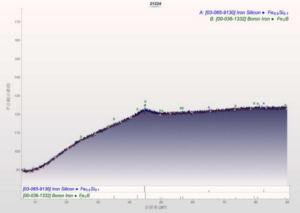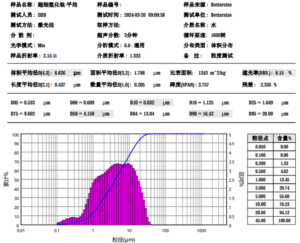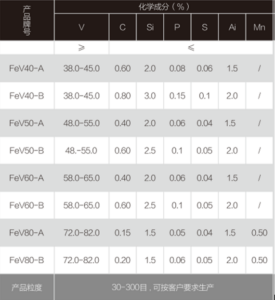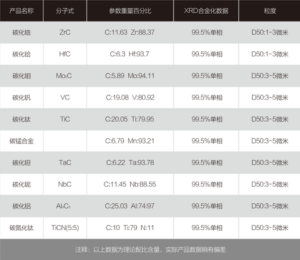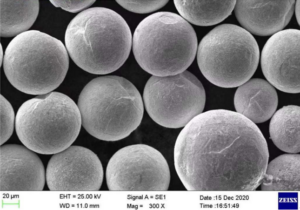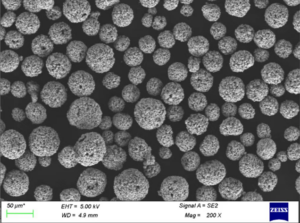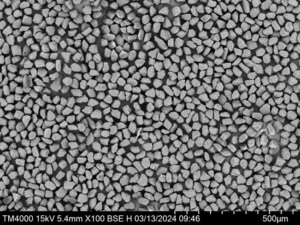Introduction
Cemented carbide is usually composed of cemented carbide skeleton and metal binder, is a kind of material with excellent hardness and excellent wear resistance, which is convenient for its application in the manufacturing of cutting tools, drills, wear parts, etc. Generally, cemented carbide is produced by conventional powder metallurgy (PM), hot isostatic pressing (HIP), self-propagating high-temperature synthesis (SHS), and spark plasma sintering (SPS). But most of them can only produce components of limited geometric complexity. In addition, these processes are not efficient and costly due to the long technical processes involved.
OurWC-12Co cemented carbide powdersprepared by ball milling, spray granulation, pre-sintering, sieving and grading can beapplied by laser powder bed melting (LPBF). The carbide parts by LPBF by our mixedWC-12Co powder with almost spherical with particle sizes of 15-53 μm, and the binder Co is uniformly dispersed in the WC matrix are showed excellent mechanical properties and wear characteristics by adjusting suitable scanning speed.
Figure 1 shows the optical microstructure of WC-12Co cemented carbide LPBF parts formed from WC-12Co powders at 400 mm/s scanning speed. The red and blue areas in Figure 1a represent WC and Co adhesives (Co based solutions), respectively. WC grains show a bimodal microstructure, and the maximum, minimum and average grain sizes are about 25, 1.5 and 8.7 μmrespectively.
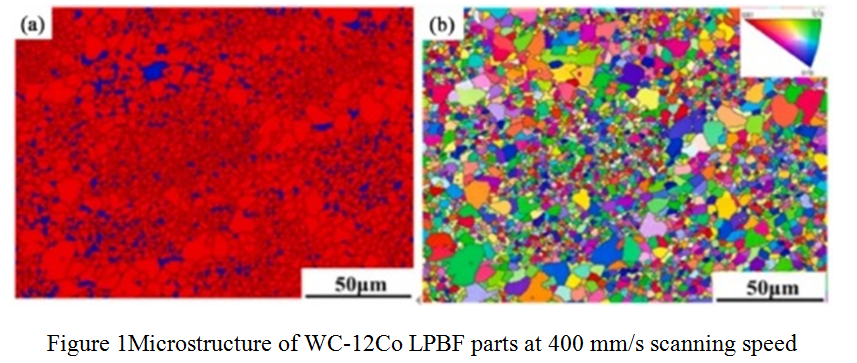
Figure 2shows the Rockwell hardness (HRA) and transverse breaking strength (TRS) of WC-12Co cemented carbide prepared by LPBF from WC-12Co powders. With the increase of laser scanning speed, HRA decreases gradually. Increasing the laser energy density will lead to an increase in the hard and brittle ƞ phase.
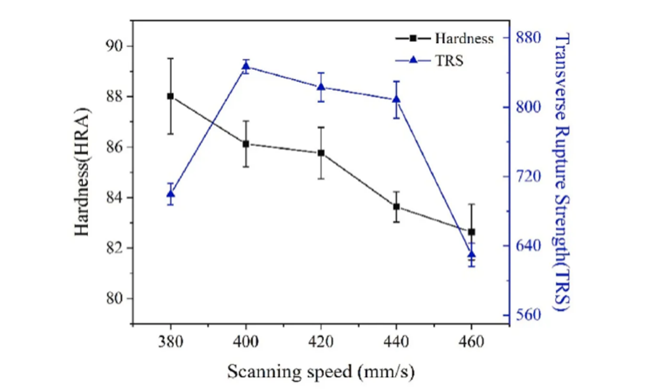
In order to analyze the wear mechanism of WC-12Co cemented carbide prepared by LPBF, the wear surface is shown in Figure 3. For WC-12Co cemented carbide formed at 380 mm/s, wear marks can be clearly observed, and the WC matrix is seriously damaged. Grooves and scratches can be observed in samples prepared at a speed of 400 mm/s, which are typical features of abrasive wear:
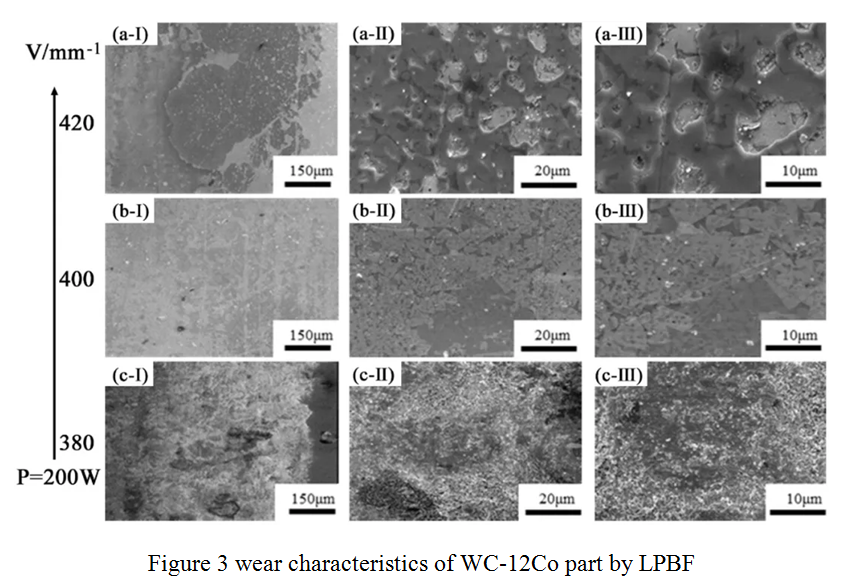
Conclusion
The microstructure, mechanical properties and wear characteristics of WC-12Co cemented carbide prepared by LPBF from WC-12Co powders were investigated.
The main conclusions are summarized as follows: (1) The alternating distribution of coarse and fine WC grains was observed in the WC-12Co cemented carbide prepared by LPBF. (2) With the increase of laser scanning speed, TRS first increases to the maximum value, and then decreases. The variation of TRS is mainly attributed to the evolution of brittle ƞ phase and metallurgical defects. (3) For WC-12Co cemented carbide formed at low scanning speeds, the brittle η phase may break and cut the matrix during friction, resulting in loss of wear mass. For samples formed at high scanning speeds, the formation and shedding of shear layers will accelerate the friction process and destroy the wear resistance of WC-12Co cemented carbide. Therefore, samples prepared at a scanning speed of 400 mm/s show the best wear resistance.
